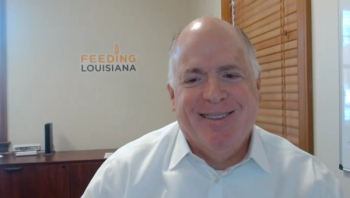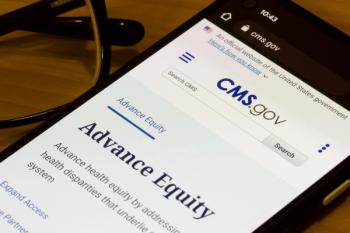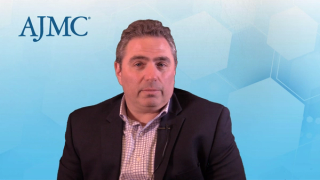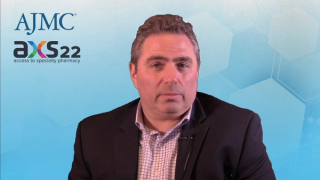
Health Care Cost
Latest News


What We’re Reading: Lab Tests Under Federal Oversight; TB Cases Rise; Drug Manufacturers Lose Price Negotiation Challenges
Latest Videos

CME Content
More News

The 340B hospitals not receiving an offsetting lump-sum payment from CMS following 2018-2022 cuts later ruled unlawful are disproportionately rural, publicly owned, and nonacademic, according to a new study.

What We’re Reading: FDA Approves UTI Antibiotic; Ozempic, Wegovy Price Investigation; US Births Fall
The FDA recently approved an antibiotic for the treatment of urinary tract infections (UTIs) in women; a Senate committee recently launched an investigation into the prices of Novo Nordisk’s diabetes and weight loss drugs; US births fell last year, resuming a national slide after a previous increase during the pandemic.

The Federal Trade Commission's (FTC's) vote to ban most employers from issuing and enforcing noncompete clauses could have varying impacts on the health care workforce; federal regulators vastly under-enforced antitrust laws in the hospital sector during the last 2 decades, resulting in increased health costs; the FDA recently found genetic evidence of the H5N1 bird flu virus in pasteurized commercially purchased milk.

With the high burden of metabolic disease increasing in the US, Sophia Humphreys, PharmD, Sutter Health, explains how this impacts health equity.

New health privacy rules aim to protect patients and providers in an evolving abortion landscape; some physicians express concerns about efficacy, risks, and entrenched beliefs in treating Alzheimer disease; CMS addresses longstanding staffing deficits in nursing homes.

The FDA granted accelerated approval to talquetamab on August 9, 2023, as a treatment option for adult patients with relapsed/refractory multiple myeloma (RRMM) who have failed at least 4 prior lines of therapy.

In an interview during The American Journal of Managed Care®'s Institute for Value-Based Medicine® event, held with Sutter Health, Ryan Stice, PharmD, BCPS, explains the impact virtual population health teams can have on improving access to care for patients with cardiometabolic conditions.

The Center on Health Equity and Access provides the latest developments related to the progress, challenges and gaps in health care with new research, ongoing meetings, and expert insights.

Douglas M. Long, BA, MBA, was featured as the keynote speaker on the closing day of The Academy of Managed Care Pharmacy 2024 annual meeting, with a session dedicated to surveying the health care and pharmaceutical trends of the last year.

Leslie Fish, PharmD, senior vice president of pharmacy at IDP Analytics, LLC, reflects on the future of biosimilars and the impact they will have on managed care pharmacy settings to improve patient access to medications.

A cost-utility analysis conducted from the perspective of the Italian health system found that pegcetacoplan was more effective and less costly than 2 complement 5 (C5) inhibitors for the treatment of paroxysmal nocturnal hemoglobinuria (PNH).

Prices for care at hospital trauma centers vary across hospitals; drug shortages reached a record high during the first quarter of 2024; although 3 of the biggest makers of asthma inhalers pledged to cap out-of-pocket costs for some US patients at $35, these do not apply to daily inhalers used by the youngest kids with asthma.

Commonwealth Fund Report Details Pervasive Racial and Ethnic Disparities in US Health Care, Outcomes
Using 25 health system performance indicators, the Commonwealth Fund 2024 State Health Disparities Report evaluated racial and ethnic disparities in health care and health outcomes both within and across US states and highlighted the urgent need for equitable health care policies and practices in the US.

Public health campaigns are imperative to alleviating food insecurity, Pat Van Burkleo, executive director of Feeding Louisiana, the Louisiana Food Bank Association, explained in an interview.

The data for this analysis on survivors of lung cancer came from Johns Hopkins Sidney Kimmel Comprehensive Cancer Center thoracic oncology clinics.

While health plans often employ reimbursement rates as a tool to incentivize provider participation within their networks, study results showed reimbursement rates for office visits with medical/surgical clinicians were on average 22% higher than behavioral health clinicians.

Large insurance sales agency call centers are accused of enrolling individuals in plans without consent; more young adults are choosing permanent contraception procedures; widespread frustration with prior authorization requirements hints at potential future measures.

New research examining treatment initiation patterns among patients with axial spondyloarthritis revealed significant sex-based disparities, shedding light on the process from diagnosis to therapeutic intervention.

The introduction of momelotinib to treat myelofibrosis with anemia can result in small savings due to reduced transfusion-related costs, according to a budget impact model.

Nearly a quarter of adults disenrolled from Medicaid are now uninsured; a new bill in Alaska will allow primary care providers to offer care based on monthly fees; the CDC warns of a 17-fold increase in measles cases in the first quarter of 2024.

What We’re Reading: Medicare Funding for SCD Gene Therapies; Long COVID Moonshot; Rise in Mpox Cases
Funding proposal includes gene therapies for sickle cell disease (SCD); draft legislation aims to address long COVID challenges; efforts are underway to prevent a summer surge.

As CMS’ suite of value-based and accountable care models evolves, leaders from across the agency detailed how they are working together to streamline quality reporting and encourage the move to a population health mindset while addressing providers’ concerns.

This feature series delves into how biases shed light on deeply ingrained stereotypes and prejudices that exist within the structure of US maternal health care, according to experts.

Pat Van Burkleo, the executive director of Feeding Louisiana, the Louisiana Food Bank Association, shares insight on legislative priorities and the impact food insecurity can have on health.

Lawmakers are under pressure to decide the fate of COVID-era telehealth payment changes; the CDC reports an alarming increase in sexually transmitted disease (STD) cases among Americans 55 years and older; new regulations aim to reduce harmful exposure to per- and polyfluoroalkyl substances (PFAS), also known as “forever chemicals.”














